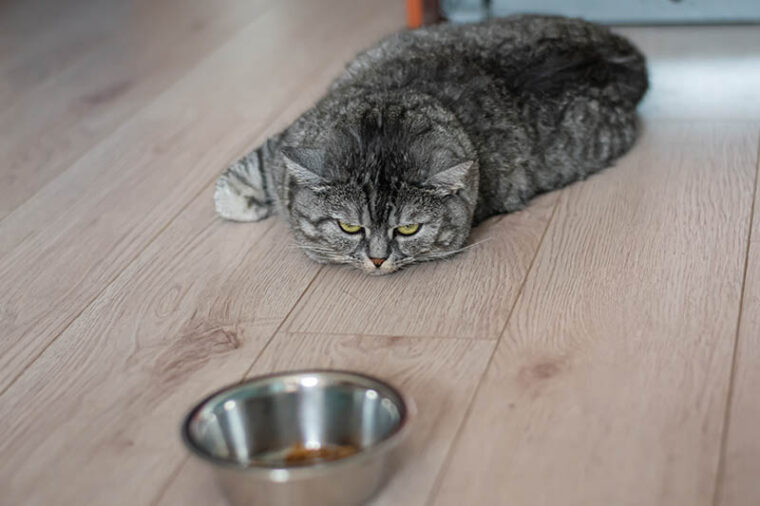
Click to Skip Ahead
Cats can be finicky creatures. If your cat suddenly becomes a picky eater, it could simply be that selective nature making itself known. But if it seems uncharacteristic of your cat, it could be their way of communicating that something is wrong.
Whether issues with the food or the cat’s health, there are many reasons your cat may suddenly shirk food when they haven’t before. If you want to get to the bottom of their behavior, read on and see if any of these possibilities apply to your situation.
Problems With the Food
If your cat is suddenly picky about their food, the reasons could lie within their diet. They may be dissatisfied with their food for several reasons.
1. The Food Is Not Fresh
No one wants to eat stale food, especially not cats. If your cat’s food has been left out too long or there was a puncture in the airtight container, the food may have gone bad. Stale food is far from appetizing, which may be why your cat is avoiding their meals.
Check the texture and color of their food to see if it has gone stale. Purchase a new batch and feed it to them to see if they eat it. If they do, they probably just had issues with that one bag.
2. Your Cat Does Not Like the Temperature of the Food
If you feed your cat wet food that has been refrigerated, the temperature could be the reason for their disapproval. Cats tend to prefer room-temperature food to cold food, and they may avoid eating any refrigerated wet food.
An excellent way to tell if this is the issue is to microwave the wet food for a few seconds. It does not need to be hot; it just needs to warm up a bit. If your cat is eager to dig into the warmed-up meal, the temperature could have been the issue.
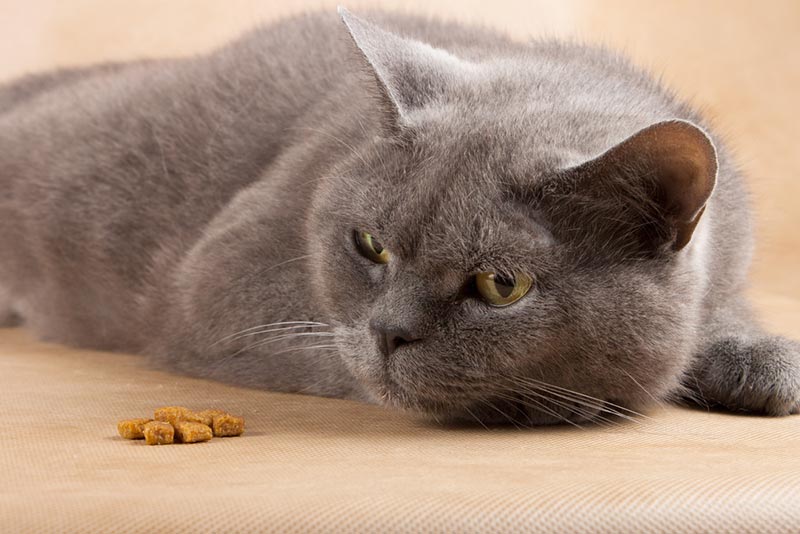
3. The Ingredients Are Not to Your Cat’s Liking
Your cat’s dislike for the food could be as simple as a dislike for the ingredients. Just like humans, cats tend to have favorite flavors. If you have recently switched the food, or the brand you regularly buy has changed out a core ingredient, that could be the cause of the avoidance.
Changing the food or mixing dry food with wet food may be a good way to reinvigorate their appetite.
4. Your Cat Is Bored of the Food
Your cat could be picky about their food due to boredom. If you have been feeding your cat the same food for too long, they may lose interest in eating. It may be worthwhile to try to switch the food so that they do not get bored and do not develop any adverse health effects from ignoring their meals.

5. The Location of the Food Unsettles Your Cat
Where do you keep your cat’s food? The answer to that question could be the key to picky eating habits.
If your cat’s food bowl is located in an area that is too noisy or stressful, they may be avoiding it. Quiet, secluded areas are good spots for your cat’s food bowl. If you think the location could be the reason for the finicky behavior, try moving the bowl to a more secure location and see if the habits change.
Or, if you’re looking to try something a bit different, the Hepper NomNom Cat Bowl puts an innovative, modern spin on the traditional cat dish. It caters to the specific needs of felines, like offering whisker relief and elevated dishes that improve better posture. Its also a gra option for pet owners! It's contemporary in style and the base wraps around both stainless steel bowls to ensure that any food and water stays in the tray and off your floor. Find out here if the Hepper NomNom Cat Bowl is right for you.
At Pet Keen, we’ve admired Hepper for many years and decided to take a controlling ownership interest so that we could benefit from the outstanding designs of this cool pet company
Problems With Your Cat’s Health
Although the food may be the source of your cat’s behavior, there could also be a medical condition changing their eating habits. Before assuming that a food issue is behind their pickiness, you will want to rule out any medical cause.
6. Urinary Tract Infection
Your cat’s peculiar new eating habits could be caused by a urinary tract infection. If your cat shows signs of having a UTI, such as frequent urination, restlessness, and bloody urine, take your cat to the vet immediately.
A UTI is a serious condition. For male cats, a UTI could be fatal within hours. Female cats should see a vet within 24 hours of showing symptoms. The sooner you can get your cat to the vet, the better.
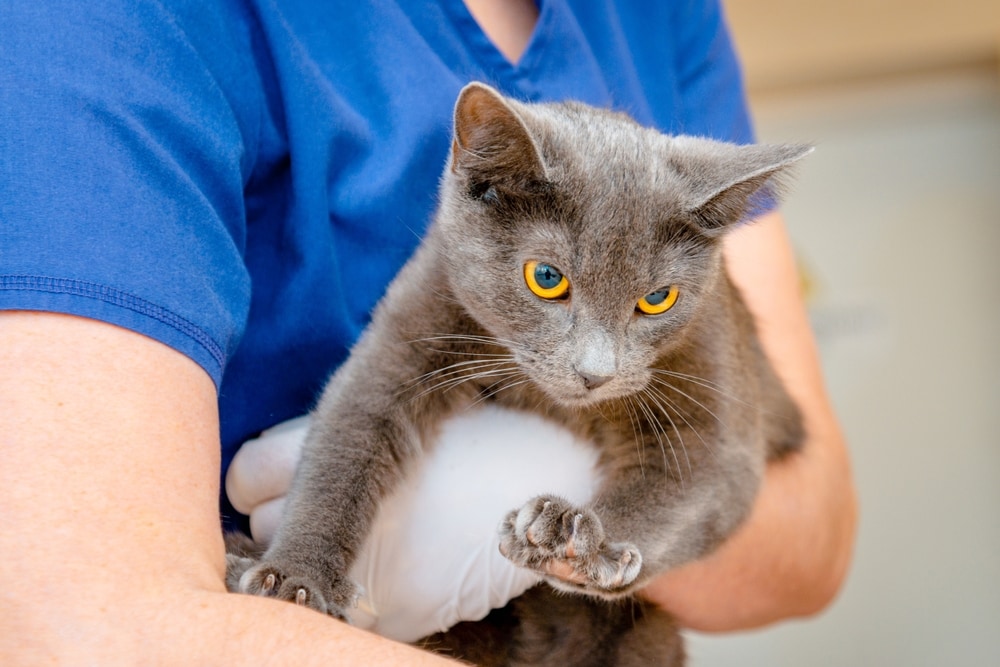
7. Kidney Disease
Kidney disease may affect your cat’s eating habits. Other symptoms include increased thirst, dehydration, vomiting, bad breath, mouth sores, fever, lethargy, and edema. If you notice any of these symptoms, you must get your cat to the vet immediately.
With kidney disease, treatment must be secured as soon as possible. If noticed and treated early on, your cat’s quality of life can be improved, and they can live a fulfilling life with the condition. When the disease is detected in the later stages, when it’s chronic, the treatment is more challenging. Some vets will recommend euthanasia as a humane alternative.
8. Pancreatitis
The pancreas is essential to the digestion of food and the maintenance of blood sugar. If your cat has developed pancreatitis or inflammation of the pancreas, it can have a significant impact on both of those functions.
Vomiting, decreased appetite, weight loss, and diarrhea are all signs that your cat may have pancreatitis. Pancreatitis may be a symptom of an underlying medical issue, and it is vital to reach out to your vet if you think your cat may be struggling with this condition.
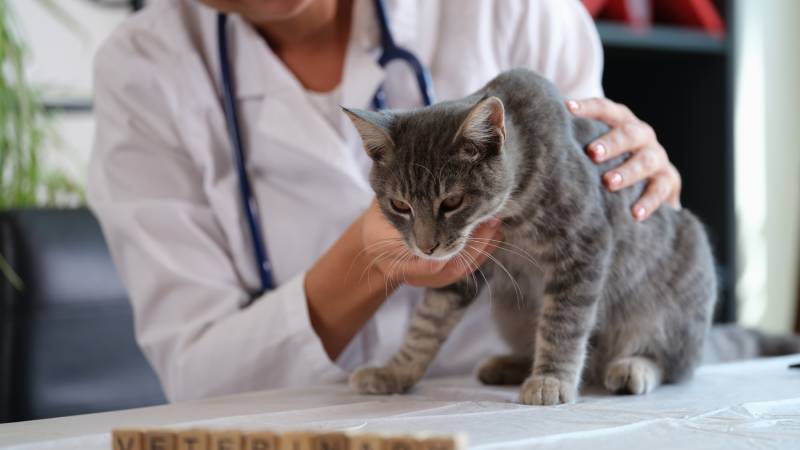
9. Dental Issues
Tooth pain may be the reason your cat is reluctant to eat. There are a number of dental issues that could lead to tooth pain, but if one of them is to blame, you should take your cat to a vet to have their teeth examined.
The best way to prevent dental issues is to stay on top of your cat’s oral hygiene. Routine dental cleanings are essential to your cat’s dental health as well as daily tooth brushing done at home.
10. Gastrointestinal Issues
Your cat could be shying away from food because their stomach does not feel well. If your cat has developed any number of gastrointestinal issues, then they may have a significantly decreased appetite.
If your cat displays other signs, such as diarrhea or constipation, you can take your cat to the vet to diagnose the specific condition and find treatment.
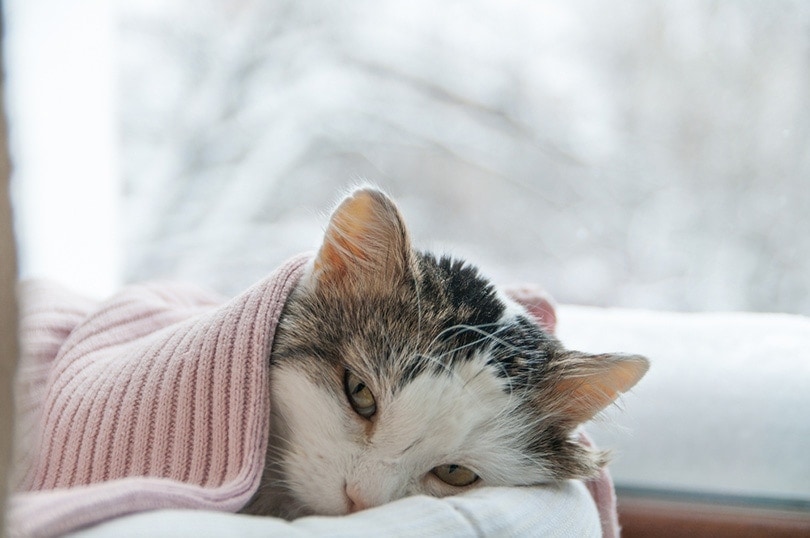
11. Cancer
Cancer could be the cause of your cat’s picky appetite. It is a very real possibility, especially in older cats, and you will want to pay attention to your cat to see if they show any other signs. Vomiting, diarrhea, weight loss, and lethargy can all be seen with cancer. If you notice any of these symptoms in your cat, take them to the vet right away.
Conclusion
It can be scary when your cat has not been eating as much as they normally do. Whether the issue is as simple as fixing the food or as serious as a medical condition, it is important to get to the bottom of it so that your cat can maintain a balanced diet essential to their health.
Featured Image Credit: Kitirinya, Shutterstock









